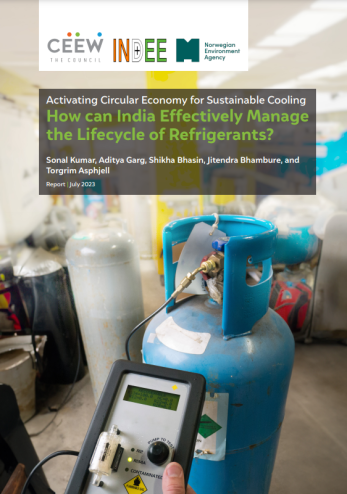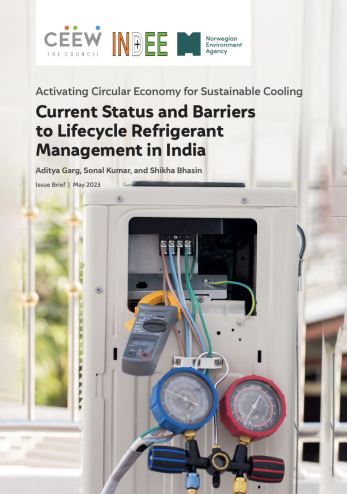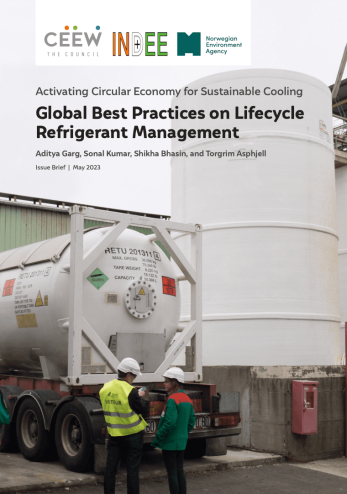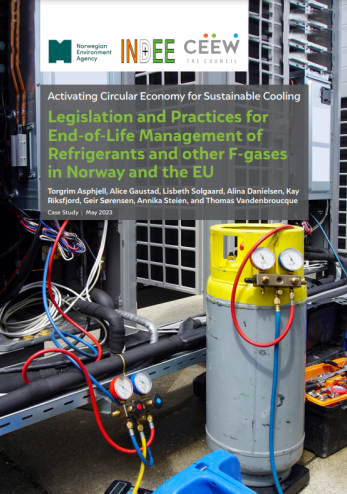Issue Brief
Safety, Upskilling, and Good Servicing Practices for Cooling
Standardising Training for Refrigeration and Air-Condition Technicians
Apurupa Gorthi, Shikha Bhasin, Vaibhav Chaturvedi
July 2020 | Sustainable Cooling
Suggested citation: Gorthi, Apurupa, Shikha Bhasin, and Vaibhav Chaturvedi. 2020. Safety, Upskilling, and Good Servicing Practices for Cooling: Standardising Training for Refrigeration and Air-conditioning Technicians. New Delhi: Council on Energy, Environment and Water.
Overview
This issue brief explores how India’s refrigeration and air-conditioning (RAC) servicing sector can standardise training curricula by adopting a common code, the National Occupational Standards (NOS). The India Cooling Action Plan (ICAP) has identified the standardisation of training and a skill certification as two immediate steps to be taken for developing the servicing sector. The brief proposes four priority areas for framing NOSs for training programmes. It also undertakes a first-of-its-kind assessment of five chosen government training programmes. It evaluates whether these programmes have included the four priority areas in their curricula for RAC service technicians. Furthermore, it offers policy recommendations for the standardisation of RAC servicing curricula.
Key highlights
- The RAC servicing sector accounts for over 40 per cent of hydrochlorofluorocarbon (HCFC) use in India (Ozone Cell 2017).
- The channels of RAC training fall under the following three categories: central government, state government, and private sector training programmes.
- Standardisation of curricula is imperative to ensure all training programmes incorporate topics that address changes anticipated for the HFC phase-down in India.
- Any plan of action developed for government training can be extended to private sector through appropriate hard or soft policy mandates.
The five notable government-run training programmes evaluated are:
- Hydrochlorofluorocarbon (HCFC) Phaseout Management Programme Stage II (HPMP II) by the Deutsche Gesellschaft fur Internationale Zusammenarbeit
- Recognition of Prior Learning (RPL) by the Electronics Sector Skills Council of India (ESSCI)
- Craftsmen Training Scheme (CTS) by the Directorate General of Training (DGT)
- Room Air-conditioner and Home Appliance (RACHA) Engineer Training by the Ministry of Micro, Small and Medium Enterprises (MSME)
- Mechanic Refrigeration and Air- conditioner by the Directorate of Vocational Education and Training (DVET), Government of Maharashtra
- NOSs (National Occupation Standards) are standards of performance, knowledge and understanding of an individual required for a job.
Four steps for creating National Occupational Standards for a training programme by the Sector Skill Councils
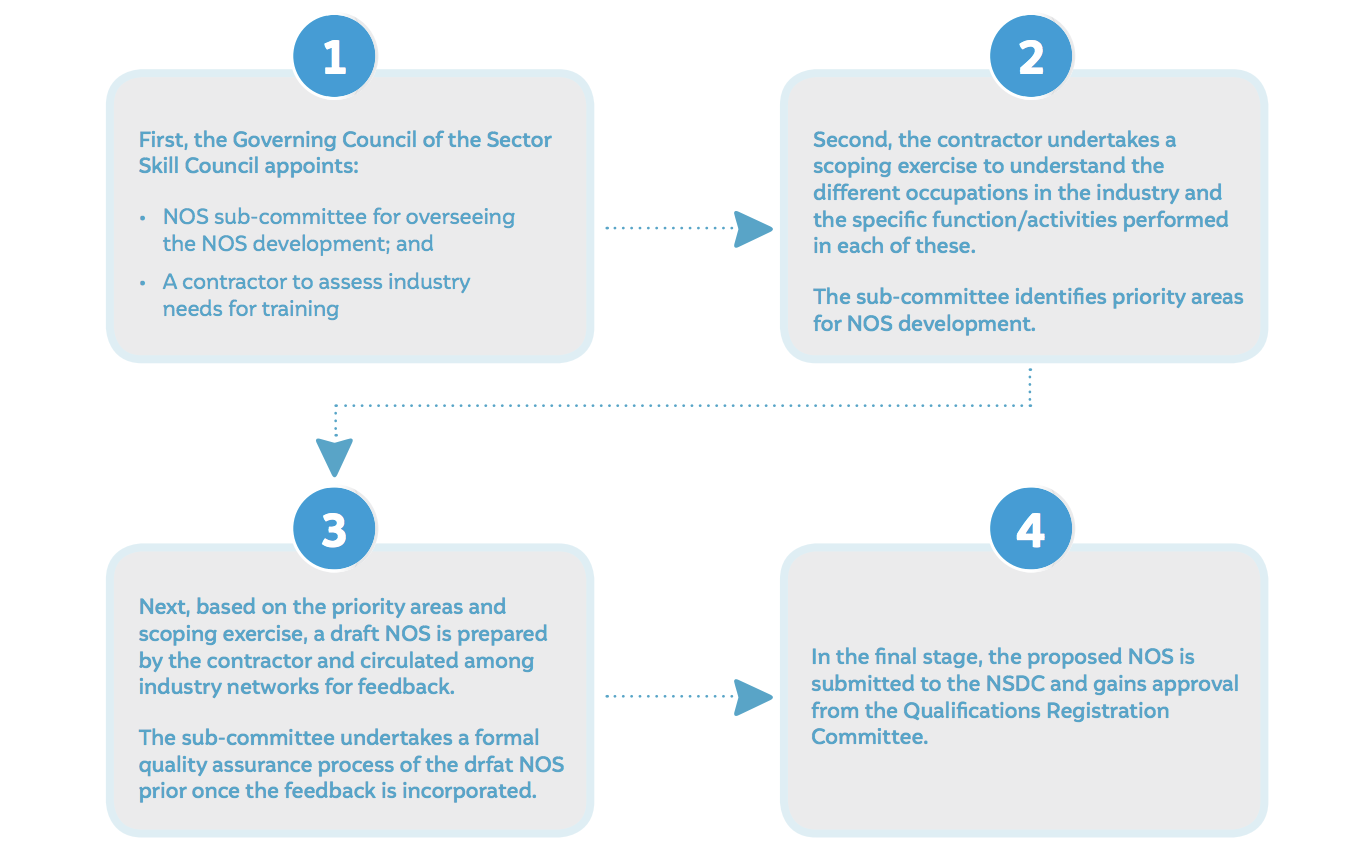
Source: Authors’ compilation based on documentation by the National Skill Development Council (NSDC nd)
The proposed priority areas for training under India’s mandate for refrigerant transition and the need to up-skill technicians in the servicing sector are:
- Awareness and compliance of Good Serving Practices (GSP)
- Knowledge and practical skills in handling alternative refrigerant gases
- Implementation of measures to ensure occupational safety
- Employability skills and career development of servicing sector technicians
The proposed NOS for training curricula are:
- Adherence to good servicing practices (GSP)
- Awareness of and skilled in handling flammable/toxic refrigerant gases
- Perform installation, repair, and maintenance while strictly adhering to safety protocols
- Employability by a formal sector enterprise
Five-point value proposition from standardisation of servicing sector training programmes
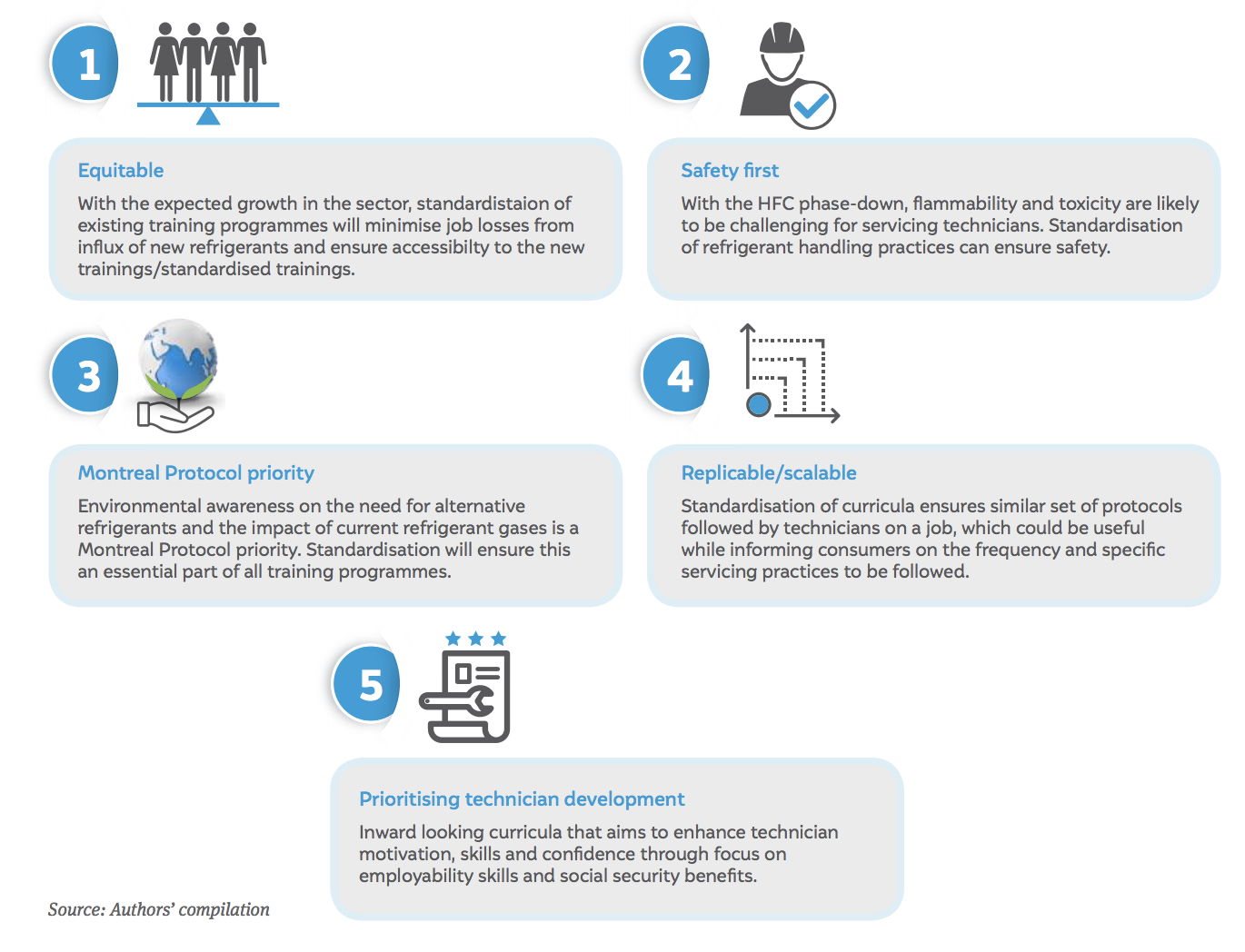
Key recommendations
- Ensure co-ordination between the Ozone Cell (MoEF & CC), ESSCI (MSDE) and industry associations to so that all aspects of skill development and emission reduction are included in training programmes.
- Government programs that are already NOS compliant to consider incorporating priority areas identified in this brief for future upgradation
- Private sector curricula should align with the NOSs based on the identified priority areas recommended in this brief
- Establish a committee of experts who periodically update the curricula employing the NOS framework and identifying priority areas
Standardisation of curricula is imperative to ensure all training programmes incorporate topics that address changes anticipated for the HFC phase-down in India.




